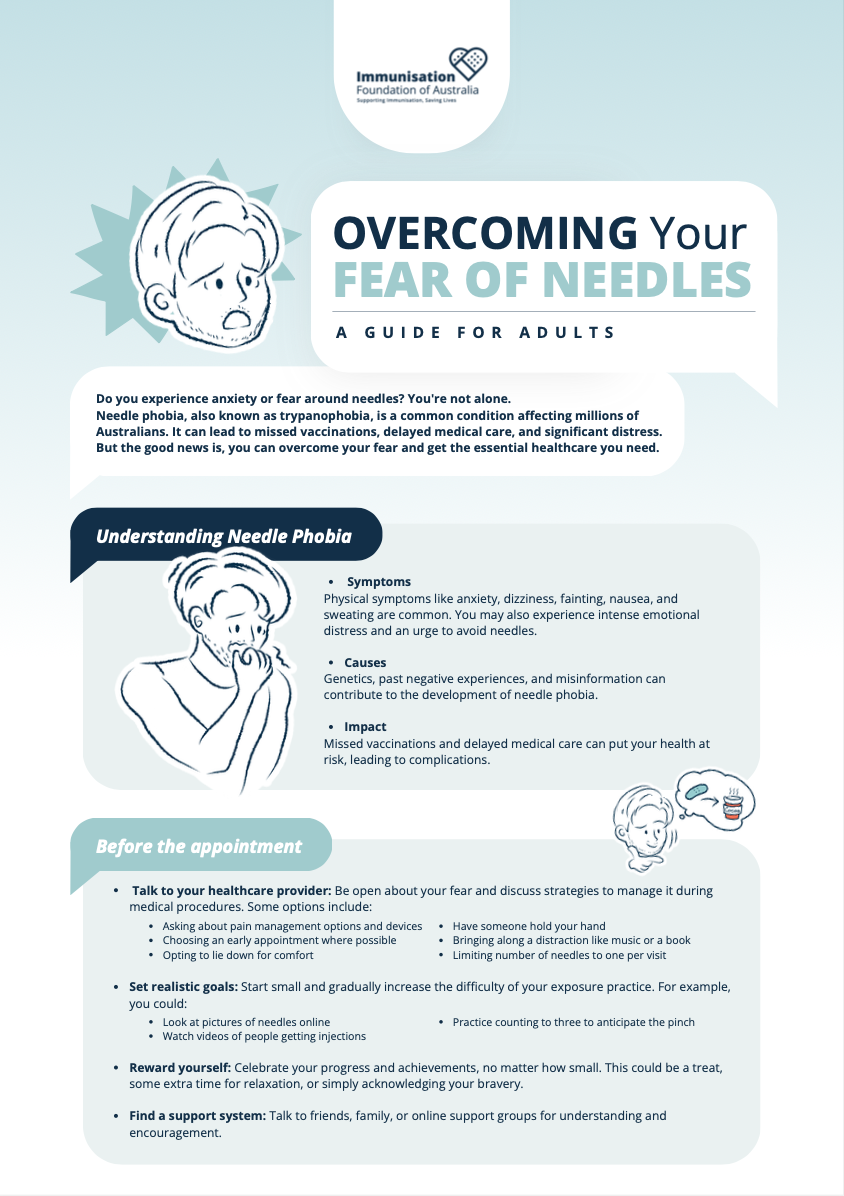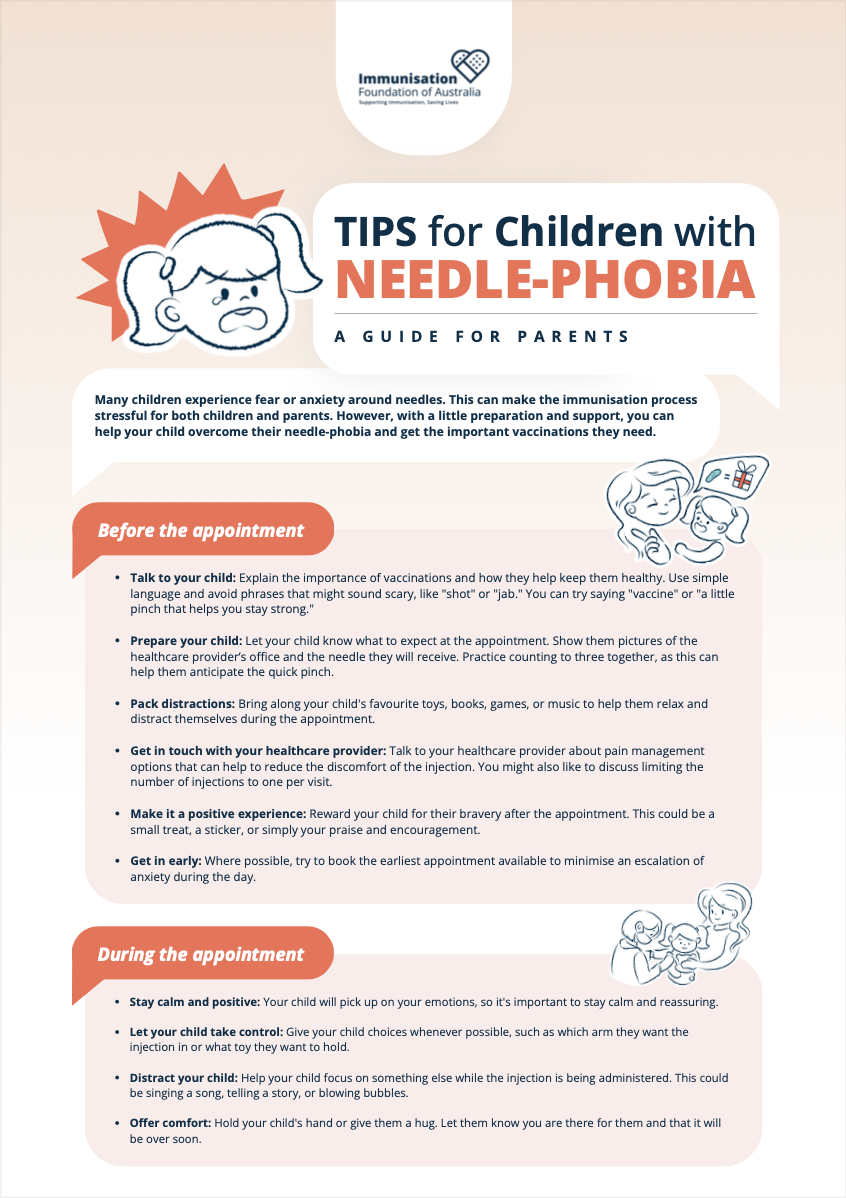Needle Phobia: Taking Control of Your Fear
For many people, needles are an unavoidable part of life.
They are used to deliver vaccines, draw blood, and administer medications. However, for millions of Australians, the sight of a needle can trigger intense fear and anxiety. This condition is known as needle phobia, or trypanophobia.
What exactly is needle phobia?
Imagine this: you're sitting in the doctor's office, waiting for your annual checkup. Your heart starts to race, your palms become sweaty, and your stomach churns. This is just the thought of having your blood drawn. If this scenario sounds familiar, you may have needle phobia.
Needle phobia is a common and intense fear of needles and medical procedures that involve them. People with this phobia experience a range of physical and emotional symptoms, including:
Anxiety and panic attacks
Dizziness and light-headedness
Fainting or near-fainting
Nausea and vomiting
Sweating and trembling
Rapid heartbeat and shortness of breath
Urge to flee the situation
While the exact cause of needle phobia is unknown, there are several risk factors, such as:
Genetics: A family history of phobias or anxiety disorders can increase your risk.
Past negative experiences: Having a painful or traumatic experience with needles can trigger the development of a phobia.
Misinformation: Negative media portrayals or misinformation about needles can contribute to fear.
What are the consequences of needle phobia?
If you have needle phobia, you may go to great lengths to avoid situations where you might encounter needles. This can lead to:
Delayed or missed vaccinations: This can put you at risk for serious diseases.
Inadequate medical care: You may avoid necessary medical tests and treatments.
Social isolation: You may decline invitations to events that involve medical procedures, such as blood drives.
The good news is that needle phobia is treatable. There are many effective treatments available, including:
Exposure therapy: This involves gradually exposing yourself to needles in a safe and controlled environment.
Cognitive behavioral therapy (CBT): This therapy helps you identify and change negative thought patterns and behaviors related to needles.
Relaxation techniques: Techniques like deep breathing and mindfulness can help reduce anxiety and fear.
By overcoming your needle phobia, you can improve your health and well-being and gain access to the essential healthcare you need.
Flyers
Tap or click the image to download the material
This section of the Immunisation Foundation of Australia website is dedicated to providing you with the information and resources you need to take control of your needle phobia. We hope you find the information helpful and empowering.






